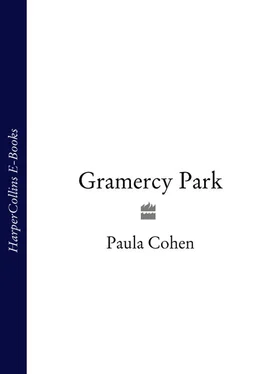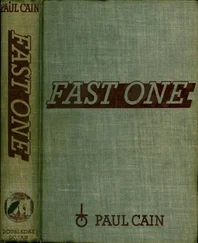

For my mother,
EDNA RAE GOLDMAN;
always loving, always loved, always with me
Cover
Title Page
Dedication
Book I: Mario
Prologue
Chapter One
Chapter Two
Chapter Three
Chapter Four
Chapter Five
Chapter Six
Chapter Seven
Chapter Eight
Chapter Nine
Chapter Ten
Chapter Eleven
Chapter Twelve
Chapter Thirteen
Chapter Fourteen
Chapter Fifteen
Book II: Clara
Chapter Sixteen
Chapter Seventeen
Chapter Eighteen
Chapter Nineteen
Chapter Twenty
Chapter Twenty-one
Chapter Twenty-two
Chapter Twenty-three
Chapter Twenty-four
Chapter Twenty-five
Chapter Twenty-six
Chapter Twenty-seven
Chapter Twenty-eight
Chapter Twenty-nine
Book III: Chadwick
Chapter Thirty
Chapter Thirty-one
Chapter Thirty-two
Chapter Thirty-three
Chapter Thirty-four
Chapter Thirty-five
Chapter Thirty-six
Chapter Thirty-seven
Chapter Thirty-eight
Chapter Thirty-nine
Epilogue
Acknowledgments
About the Book
About the Author
Copyright
About the Publisher
Mario
DEATH IS A GOOD TOPIC for conversation. The fascination with it seems ingrained in human beings, and there are few acts performed during the lives of most people that are so endlessly discussed, so lovingly dissected, as the act of leaving it. A natural modesty seals the lips of even the most talkative when procreation or birth are mentioned, and the intimate details of marriage, child-rearing, and family life are, at best, confided to one’s closest friends.
But death is different. The last, lingering illness and all of its symptoms are picked over with morbid glee; and the greater the suffering, the longer the illness, the uglier the end, the more the head-wagging preoccupation with it.
The passing, therefore, of an elderly gentleman, dying quietly in his bed, would normally elicit little discussion. It is a fact, however, that there is one topic upon which people love to dwell even more than death. That topic is money. Should the elderly gentleman have been rich, therefore, the heads would wag with no less vigor, but the solemn preoccupation would be with the size of the fortune, the way in which it was amassed, and (most important of all) how—and to whom—it would be bequeathed.
Such was the case in the passing of Henry Ogden Slade—financier, philanthropist, pillar of the community—in the late winter of 1894. Sixty-six at the time of his death, Slade had been known in many circles of New York society as an upright and God-fearing, though slightly
peculiar, man. That he was upright was proved by the exemplary lack of scandal surrounding his business dealings, all of which were large, lucrative, and accomplished with unusual ease and goodwill. That he was God-fearing was proved by his success. That he was peculiar was attested to by the presence in his house of a ward—a young woman taken in by Slade at the age of fifteen, and reared and educated, for the four years until his death, as his own daughter.
What made this rather ordinary situation unusual enough to earn Slade a reputation for peculiarity were three facts. Fact one: Henry Ogden Slade was a bachelor who had lived alone for more than forty years. Fact two: Clara (for that was the young ward’s name) was neither related to Slade nor the orphaned, penniless child of friends of his youth. Fact three: her father, reputedly still living and quite prosperous, was a German immigrant who was, also reputedly, of the Hebrew faith.
All this, of course, was enough to fuel sporadic fires of conversation for years within New York society, for yet another example of the man’s eccentricity was the extreme secrecy with which he shrouded his domestic affairs. Few people had ever actually met Clara, as Slade kept her carefully cloistered within his house at Gramercy Park; and those who had, mainly elderly men like himself, come to discuss weighty matters of business over dinner, were frankly unable to say much about the girl, other than that she was tiny, pretty (in a rather Semitic way—dark, and all eyes, with an air of melancholy), and had a positive genius for vanishing silently at the tread of strangers’ feet, and the sound of strangers’ voices.
Slade’s reasons for taking her in, therefore, remained a mystery. All that was definitely known was that he and the girl’s father, one Reuben Adler, had had financial dealings, and that in the summer of eighty-nine they had met at Adler’s home on the south Jersey shore, to discuss business away from the stupefying city heat. There he had been introduced to Clara. Three months later, shortly after her fifteenth birthday, Clara had moved permanently into Slade’s home.
Perhaps it was felt that the young Miss Adler would benefit from being in the great metropolis, where she could regularly attend the opera, ballet, concerts, and the theatre, and where she would have the opportunity to meet people from a wide spectrum of acceptable society. Perhaps Slade, who should have known better, neglected to tell both the girl and her family the brutal fact that her ancestry would bar her from the company of that acceptable society, regardless of the identity of her sponsor. Or perhaps he did tell her, at some later date, for society was never once disturbed by having to refuse the discreetly dropped suggestion that Slade’s ward desired an invitation to tea, or wished to pay a call. Instead, Clara had spent the four years with Slade in nearly total seclusion, and her appearances at the ballet or opera were memorable simply because they were so rare.
Like Halley’s comet, vast stretches of time seemed to pass between her being seen; unlike that heavenly apparition, however, Clara’s appearances followed no fixed schedule. It was their very unpredictability, in fact—and her forever downcast eyes, and the way she would cling to Slade’s arm as if terrified of being swept away and drowned in the glittering crowds—that caused the performances on the stage to be all but forgotten in the endless, whispered speculation about her.
“Out of sight, out of mind,” however, has become a proverb precisely because it is true. During those long stretches in which Slade’s box at the opera house sat empty, New York turned its collective mind to other, more immediate—if less exotic—matters, and the mystery of Miss Adler, and her reasons for being where she was, lay dormant.
Until that terrible night in February of 1894.
According to the information gleaned from the servants, Miss Adler had been awakened, in the small hours of the morning, by cries from the dying Slade’s room. She had rushed across the passageway and arrived just in time to see his eyes glaze over. Her screams had awakened the rest of the household, and a footman had been dispatched to summon the doctor.
One horror had followed another. The worst blizzard of a bad winter had delayed the doctor; and when he finally arrived, breathless and soaking wet, Slade had already been dead for close to an hour. There
was nothing to be done for the deceased but to close his eyes, fold his arms, and pull the sheet up over his face. The girl, however, had not left the dead man’s side since entering his room, but had sat holding his hand in her own. That hand had been warm when she had taken it; by the time the doctor pried it from her frantic fingers, it was growing cold and beginning to stiffen.
Читать дальше














